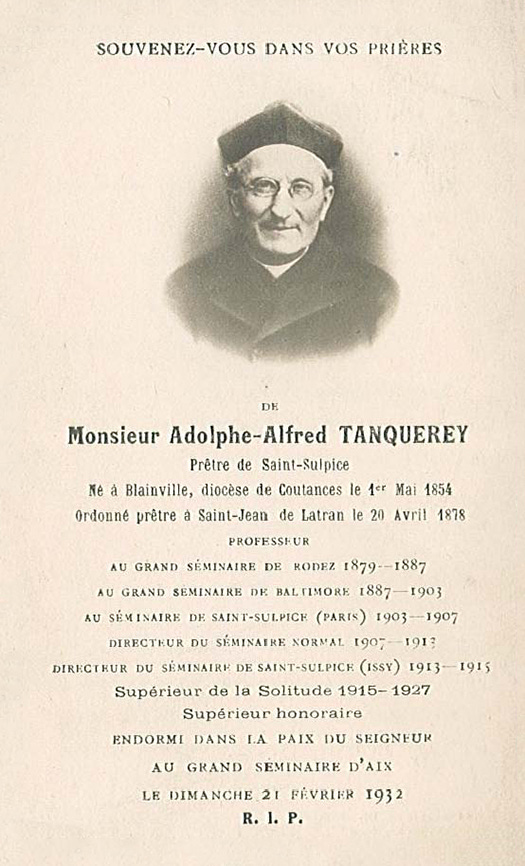
Here is a window into another time and a way to think about our own.
French theologian Adolphe Tanquerey (1854-1932), of whom it was said “the aestehtical and mystical life inflamed him,”1 encourages us to adopt a rule of life as a norm of conduct. Why?
A) It enables us to make better use of our time.
Let us compare the life of a person that follows a rule with that of another that does not.
a) He that lives without a rule inevitably wastes a great deal of time: (1) He hesitates as to what is the best thing to do. Time is spent in deliberation, in weighing the reasons for and against, and, as in many cases there are no decisive reasons on either side, he is liable to remain inactive; then, as natural inclinations gain the upper hand, he runs the risk of being led by curiosity, pleasure, or vanity. (2) He neglects a certain number of duties, for having neither foreseen nor determined the acceptable time and place for their fulfillment, he no longer finds time to perform them all. (3) These negligence’s engender inconstancy. At times he makes vigorous efforts to steady himself, while at other times he surrenders to his native indolence, and this, just because he has no fixed rule that would act as a corrective to the fickleness of his nature.
b) The man who holds to a well-defined rule of life saves considerable time: (1) He wastes no time in hesitation. He knows exactly what he is to do, and when he is to do it. Even if his schedule is not mathematically detailed, at least it sets time-periods and lays down principles with regard to religious exercises, recreation, work, etc…. (2) There is little or nothing unforeseen, for even should the unusual occur, he has already provided for it by determining beforehand exercises that may be shortened and the manner of making up for them. At all events, as soon as these exceptional circumstances cease to exist, he immediately comes back to his rule. (3) Inconstancy likewise vanishes. The rule urges him to do always what is prescribed, and that every day and at every hour of the day. Thus, habits are formed that give continuity to his life and assure his perseverance; his days are full days, teeming with good works and merit.*
*The quote is from The Spiritual Life published by Peter Reilly Co. in 1938, from paragraphs 559 and 560 of the Revised Second Edition, translated by Herman Branderis. For more you’ll want to look up paragraphs 579-573 where Tanquerey addresses the manner and keeping of a rule of life.
The book is available to be read online here.



